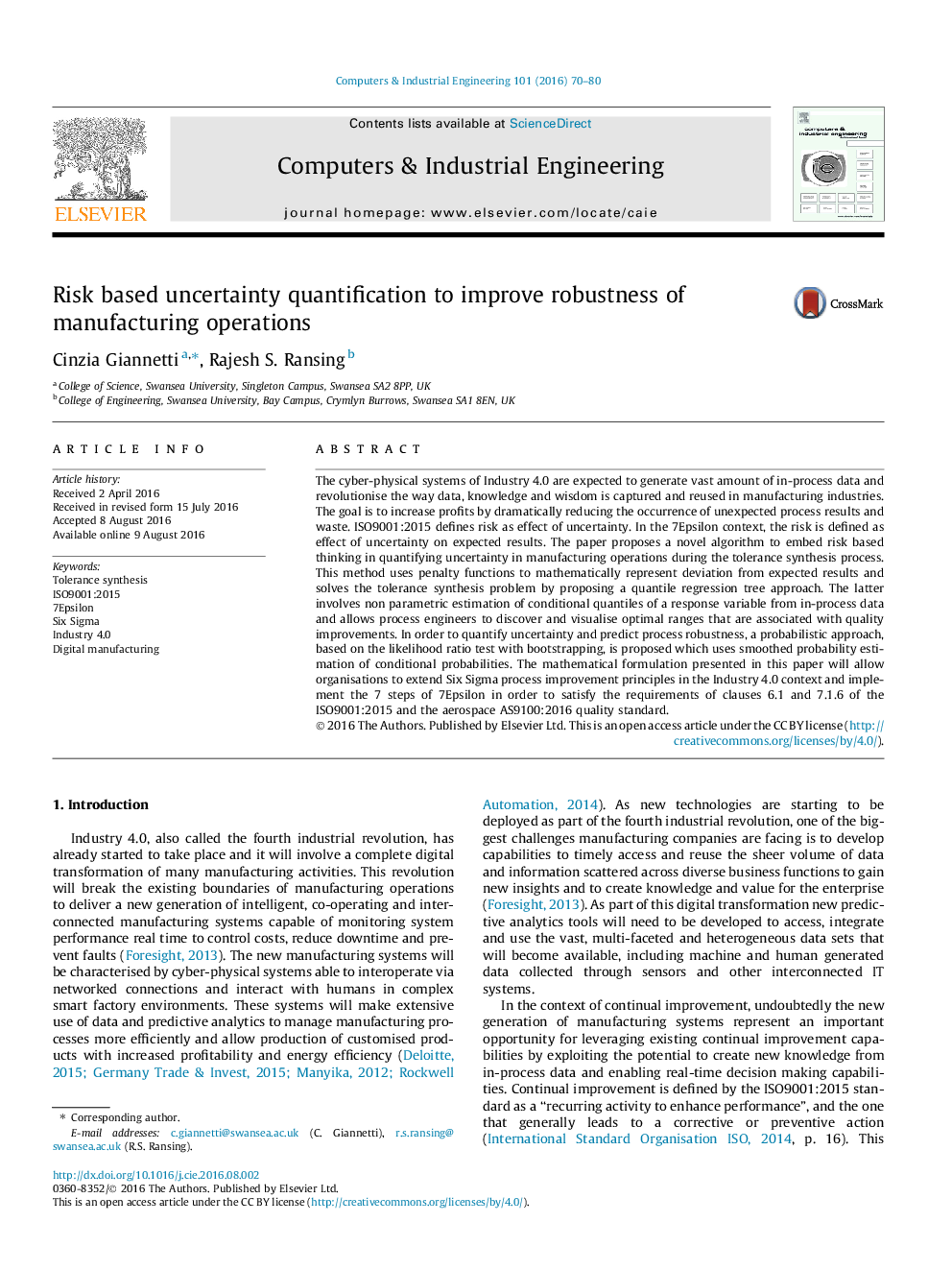| کد مقاله | کد نشریه | سال انتشار | مقاله انگلیسی | نسخه تمام متن |
|---|---|---|---|---|
| 5127876 | 1489065 | 2016 | 11 صفحه PDF | دانلود رایگان |
- We propose a novel method to improve process robustness in Industry 4.0 factories.
- The method uses quantile regression to find improved process tolerance limits.
- Likelihood ratio and bootstrap are used to quantify uncertainty.
- The method is generic and can be applied to solve the tolerance synthesis problem.
The cyber-physical systems of Industry 4.0 are expected to generate vast amount of in-process data and revolutionise the way data, knowledge and wisdom is captured and reused in manufacturing industries. The goal is to increase profits by dramatically reducing the occurrence of unexpected process results and waste. ISO9001:2015 defines risk as effect of uncertainty. In the 7Epsilon context, the risk is defined as effect of uncertainty on expected results. The paper proposes a novel algorithm to embed risk based thinking in quantifying uncertainty in manufacturing operations during the tolerance synthesis process. This method uses penalty functions to mathematically represent deviation from expected results and solves the tolerance synthesis problem by proposing a quantile regression tree approach. The latter involves non parametric estimation of conditional quantiles of a response variable from in-process data and allows process engineers to discover and visualise optimal ranges that are associated with quality improvements. In order to quantify uncertainty and predict process robustness, a probabilistic approach, based on the likelihood ratio test with bootstrapping, is proposed which uses smoothed probability estimation of conditional probabilities. The mathematical formulation presented in this paper will allow organisations to extend Six Sigma process improvement principles in the Industry 4.0 context and implement the 7 steps of 7Epsilon in order to satisfy the requirements of clauses 6.1 and 7.1.6 of the ISO9001:2015 and the aerospace AS9100:2016 quality standard.
Journal: Computers & Industrial Engineering - Volume 101, November 2016, Pages 70-80
